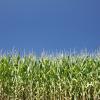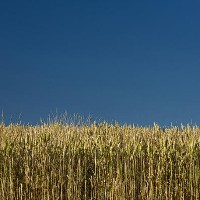
IIASA is organizing a panel discussion at the 2021 virtual American Association for the Advancement of Science (AAAS) meeting. Drawing on the outcomes of the IIASA-ISC Consultative Science Platform, international experts will discuss the impact of the pandemic on food systems, the recovery process from the 2020 crisis and how to better respond to disasters in the future.
 © Steven Hatton|Dreamstime.com
© Steven Hatton|Dreamstime.com
The humanitarian and socioeconomic crisis triggered by COVID-19 reveals vulnerabilities and inter-dependencies embedded in our current food systems. Despite globally robust food supply, rising levels of poverty, food and nutritional insecurity have been observed in developed and developing countries due to loss of income, unemployment, inadequate social safety nets, and local disruptions in food supply associated with disruptions of movement of goods and people.
The pandemic also underlines the importance of addressing the nexus between food systems, human health and the environment. Part of a growing list of zoonotic diseases, which includes HIV, SARS, MERS, Ebola among others, COVID-19 should not be seen as a singular event but recognized as disaster that has become more likely due altered human environment interactions.
The transformation of food systems has been recognized as essential to meeting the Sustainable Development Goals and the objectives of the Paris Agreement. Drawing on the outcomes of the IIASA-ISC Consultative Science Platform, the expert panel will discuss how the recovery process should be harnessed to build more resilient and sustainable food systems.
The event will take place virtually:
This panel follows the new AAAS online format. It was organized by Nicole Arbour (External Relations manager, IIASA), the respondent will be Frank Sperling (Senior Project Manager, Ecosystems Services and Management program, IIASA) and the discussion will be moderated by Pedro Sanchez (Research Professor, University of Florida).
Panelists include:
• Ruben G. Echeverria, Chair, Commission on Sustainable Agriculture Intensification (CoSAI)
• Ismahane A. Elouafi, Chief Scientist, Food and Agriculture Organization of the United Nations
• Franziska Gaupp, Director, Food System Economics Commission, EAT; Guest Research Scholar, IIASA
This year's theme: Understanding Dynamic Ecosystems
AAAS, the world's largest general scientific society, aims to promote cooperation among scientists, defend scientific freedom, encourage scientific responsibility, and support science outreach for the betterment of all humanity.
We are embedded in a variety of ecosystems, including the environments that we inhabit and the many social systems in which we live and work. Finding ways of maintaining the stable balance of these ecosystems in the face of rapidly changing circumstances is critical for our advancement. Drawing on a multitude of scientific perspectives, this Annual Meeting seeks to feature diverse ways of understanding the complexities and dynamics of biological, physical, social, and economic systems across scales, as well as strengthening and activating new connections to address underlying problems in various spheres. These challenges facing contemporary society will provide the opportunity to creatively harness science, engineering, technology, and policy to promote sustainable change.
Upcoming Events
Potsdam Institute for Climate Impact Research (PIK) & Online
German IIASA Networking Event: "Systems analysis for a sustainable and peaceful future"
Online and Austrian Academy of Sciences (Doktor-Ignaz-Seipel-Platz 2, Vienna)
Human Agency to Navigate the Anthropocene
Humboldt University of Berlin
